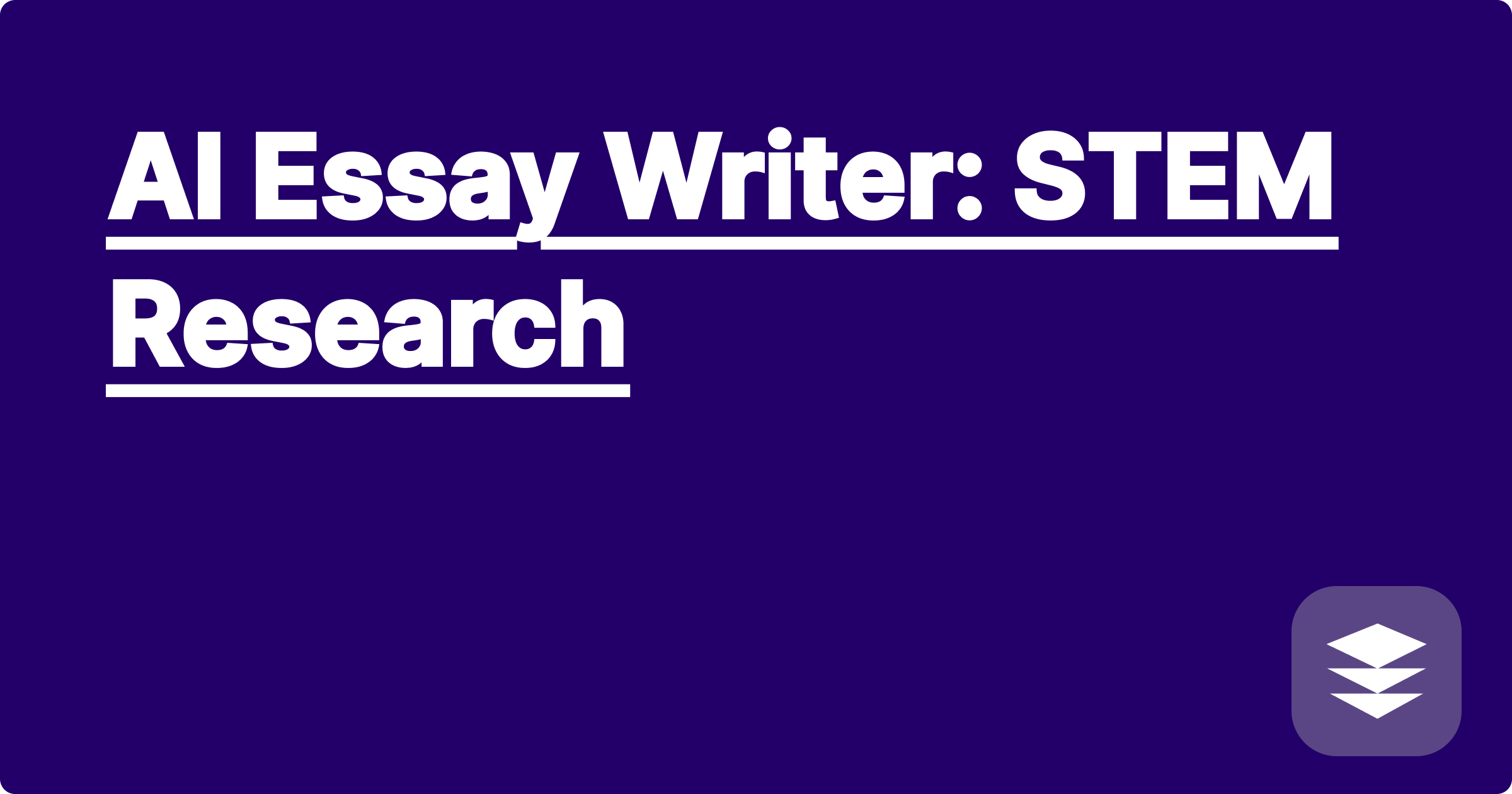
The sheer volume of information generated in STEM fields presents a significant challenge for students and researchers. Staying abreast of the latest discoveries, analyzing complex datasets, and effectively communicating research findings can be overwhelming. Artificial intelligence offers a powerful set of tools to navigate this information landscape, providing opportunities to streamline research processes, enhance understanding, and accelerate scientific discovery. AI can assist with tasks ranging from literature reviews and data analysis to drafting research papers and grant proposals, ultimately freeing up valuable time for researchers to focus on the core aspects of their work.
This matters significantly for STEM students and researchers because it represents a paradigm shift in how scientific work is conducted. Embracing AI tools can significantly enhance productivity and allow researchers to tackle more complex problems. By automating tedious tasks, AI frees up cognitive resources, enabling deeper dives into the scientific questions at hand. Furthermore, AI can help bridge the gap between different disciplines by facilitating interdisciplinary collaboration and knowledge transfer. Mastering these tools will be crucial for the next generation of STEM professionals to remain competitive and contribute meaningfully to their fields.
One of the most time-consuming aspects of STEM research is conducting thorough literature reviews. Sifting through countless research papers, identifying relevant information, and synthesizing findings can take weeks or even months. Traditional search methods often yield an overwhelming number of results, making it difficult to pinpoint the most relevant studies. Furthermore, extracting key insights and connecting disparate pieces of information from various sources can be a complex and intellectually demanding process. This is further complicated by the rapid pace of scientific advancement, meaning researchers must constantly update their knowledge base to remain at the forefront of their fields. The sheer volume of information and the need to constantly learn new concepts can lead to information overload and hinder research progress.
AI-powered language models like ChatGPT and Claude offer a promising solution to these challenges. These tools can be utilized to streamline literature reviews, analyze research papers, and even assist in drafting manuscripts. For example, ChatGPT can be prompted to summarize key findings from a set of research papers, identify common themes and trends, and even suggest potential research directions. Claude can be used to compare and contrast different research methodologies, analyze the strengths and weaknesses of existing studies, and generate insightful summaries of complex research topics. Wolfram Alpha, with its computational capabilities, can be invaluable for performing complex calculations, analyzing data, and generating visualizations. By integrating these tools into their workflow, researchers can significantly reduce the time and effort required for literature reviews and data analysis.
To effectively use AI in literature reviews, begin by defining your research question and identifying relevant keywords. Then, use these keywords to search for relevant papers in databases like PubMed or Google Scholar. Once you have a set of papers, you can use ChatGPT or Claude to summarize each paper, extract key findings, and identify common themes. Copy and paste sections of text or even entire abstracts into the AI chatbot and prompt it with specific questions like, "Summarize the key findings of this study" or "What are the limitations of this research?" For data analysis, Wolfram Alpha can be used to perform statistical analysis, generate graphs, and visualize data. Input your data into Wolfram Alpha and specify the type of analysis you want to perform. It can even interpret and solve complex mathematical equations, making it a powerful tool for theoretical research.
Consider a researcher studying the effects of climate change on coral reefs. They could use ChatGPT to analyze a collection of research papers on coral bleaching events, prompting the AI with questions like "What are the primary factors contributing to coral bleaching?" and "What are the long-term consequences of coral bleaching on marine ecosystems?" Wolfram Alpha could then be used to analyze data on sea surface temperatures, ocean acidity, and coral cover, generating visualizations that illustrate the correlation between these factors. For example, inputting data on sea surface temperature and coral bleaching rates into Wolfram Alpha could generate a scatter plot visualizing the relationship between these two variables. Furthermore, a researcher could input a formula related to ocean acidification, such as the equilibrium constant for the dissolution of carbon dioxide in seawater, and Wolfram Alpha could calculate the pH of the ocean under different CO2 concentrations.
To maximize the benefits of AI in STEM research, it's crucial to develop strong prompting skills. Clearly defined and specific prompts will yield more accurate and relevant results. Experiment with different phrasing and approaches to find the most effective way to communicate your research needs to the AI. It's also important to remember that AI is a tool, not a replacement for human critical thinking. Always critically evaluate the information generated by AI and verify its accuracy against reliable sources. Use AI to augment your research process, not to replace it entirely. Furthermore, be mindful of ethical considerations surrounding the use of AI in research, including plagiarism and data privacy. Properly cite any information obtained from AI tools and ensure that you are using data responsibly and ethically.
In conclusion, AI has the potential to revolutionize STEM research by streamlining workflows, enhancing data analysis, and facilitating new discoveries. By learning to effectively utilize these powerful tools, STEM students and researchers can significantly enhance their productivity and contribute meaningfully to their fields. Start exploring the capabilities of AI tools like ChatGPT, Claude, and Wolfram Alpha today and discover how they can transform your research process. Embrace the power of AI to unlock new possibilities in your scientific endeavors and propel your research forward. Don't be afraid to experiment and explore the different ways these tools can be integrated into your workflow to maximize your research potential.
AI for Chemistry: Ace Your Tests
AI Statistics Helper: Data Mastery
AI for CAD: Design Optimization
AI Essay Writer: STEM Research